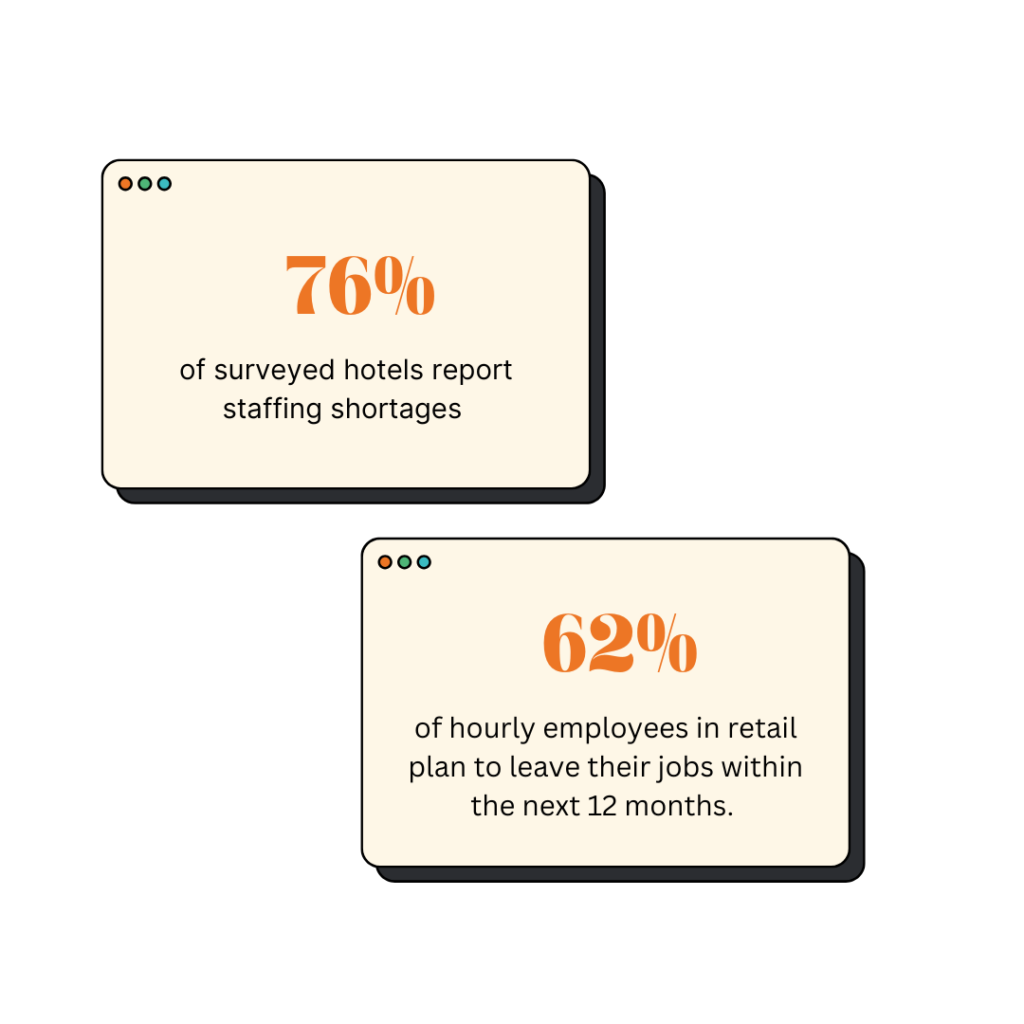Budget Season 2025: Top Goals for Finance Teams

Budget season is officially upon (most of) us. While budgeting for the upcoming year can be an incredible effort across multiple teams and take quite a bit of time, it’s also an opportunity to reassess goals for the business and look to the future.
As a Finance leader in hospitality or retail, you’re leading much of the annual budgeting efforts. While doing so, don’t forget to think about the Finance team’s needs for managing things like payments and payroll as well.
Top Goals for Finance Teams in 2025
1. Increase Financial Visibility
One of the most critical challenges facing treasury executives today is visibility into global operations, cash, and financial risk exposures. According to a Deloitte survey, these issues remain at the forefront for many companies. Improving financial visibility helps mitigate these risks and enhances the accuracy of cash flow forecasts, which is often hindered by poor quality data.
To achieve this, finance teams should focus on:
- Reducing fraud and creating a robust audit trail: Matching transactions and maintaining a detailed audit trail for all transactions and discrepancies is essential.
- Integrations across systems: Ensuring seamless integration across financial systems to prevent financial losses, cash flow issues, tax and compliance problems, and inaccurate financial reporting.
2. Improve Employee Satisfaction and Retention
Employee satisfaction and retention are paramount, especially in industries like hospitality and retail, facing ongoing staffing challenges. Addressing these issues involves is critical to success and involves:
- Creating growth opportunities: Engage your team with a greater number of opportunities for impactful, analytical work versus repetitive tasks.
- Increasing take-home pay: Consider systems that like digital tipping or other incentives to enhance compensation.

3. Increase Team Efficiency
Hand in hand with creating more meaningful work and improving retention is increasing efficiency of teams. While we have focused much on digital transformation, an astounding number of finance teams are still completing their tasks in a very manual fashion, requiring significant time and increasing the potential for human error. Key strategies for optimizing the performance of finance teams include:
- Adopting reconciliation automation: Utilizing software solutions that automatically match cash drops against the POS and manage other financial tasks can significantly enhance efficiency.
- Ensuring system integrations: Properly integrated systems prevent loss of information and operational inefficiencies.
Evaluating Your Processes
Part of being successful means consistently reevaluating what’s working — and what isn’t. In hospitality, this often includes taking a look at room upgrades, amenities, and offerings, but the reassessment shouldn’t stop with customer-facing products and services. To operate efficiently, your office, management, and accounting practices must also be up-to-date and streamlined.
Where are your systems today?
- Recently updated systems: Ensure they are integrated with other solutions for consistent data and analytics.
- Older systems: If your current systems are working but not as efficient as desired, consider the long-term benefits of upgrading.
- Underperforming systems: If your daily tasks are becoming a struggle with duplicate efforts and slow performance, it might be time for an upgrade to prevent frustration and retain talent.
Finding the ROI
Investing in innovative technology can empower your teams and enhance guest experiences. Solutions exist that are affordable, practical, and easy to implement. Incorporating automation into processes like reconciliation can save teams up to 95% of the time they were spending on those activities, according to our customers. Additionally, teams further along in their digital transformation tend to be more high-performing and find it easier to attract staff than those with lower digital adoption.
As you begin to budget for the coming year, now is a great time to assess your current challenges and market opportunities. Thinking of the future now will give progressive, forward-thinking finance teams the benefits of a first-mover advantage in the coming years.
So, how are you planning to tackle your challenges next year?


